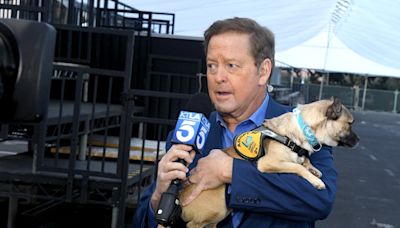Search results
Television ( TV) is a telecommunication medium for transmitting moving images and sound. The term can refer to a television set, or the medium of television transmission. Television is a mass medium for advertising, entertainment, news, and sports.
- Television (Disambiguation)
Television program; Television set; The whole area of...
- Television Genres
This is a list of genres of literature and entertainment...
- Media Formats
Аԥсшәа; العربية; Azərbaycanca; বাংলা; Беларуская...
- Lists of Television Channels
Main page; Contents; Current events; Random article; About...
- History
History of television. Family watching TV, 1958. The concept...
- Television in the United States
Television is one of the major mass media outlets in the...
- Television (Disambiguation)
- Overview
- Getting started
Television in the United States, the body of television programming created and broadcast in the United States. American TV programs, like American popular culture in general in the 20th and early 21st centuries, have spread far beyond the boundaries of the United States and have had a pervasive influence on global popular culture.
Until the fall of 1948, regularly scheduled programming on the four networks—the American Broadcasting Company (ABC), the Columbia Broadcasting System (CBS; later CBS Corporation), the National Broadcasting Co. (NBC), and the DuMont Television Network, which folded in 1955—was scarce. On some evenings, a network might not offer any programs at all, and it was rare for any network to broadcast a full complement of shows during the entire period that became known as prime time (8–11 pm, Eastern Standard Time). Sales of television sets were low, so, even if programs had been available, their potential audience was limited. To encourage sales, daytime sports broadcasts were scheduled on weekends in an effort to lure heads of households to purchase sets they saw demonstrated in local appliance stores and taverns—the venues where most TV viewing in America took place before 1948.
Students save 67%! Learn more about our special academic rate today.
Learn More
Although a television set cost about $400—a substantial sum at the time—TV was soon “catching on like a case of high-toned scarlet fever,” according to a March 1948 edition of Newsweek magazine. By autumn of that year, most of the evening schedules on all four networks had been filled, and sets began appearing in more and more living rooms, a phenomenon many credited to comedian Milton Berle. Berle was the star of TV’s first hit show, The Texaco Star Theatre (NBC, 1948–53), a comedy-variety show that quickly became the most popular program at that point in television’s very short history. When the series debuted, fewer than 2 percent of American households had a television set; when Berle left the air in 1956 (after starring in his subsequent NBC series The Buick-Berle Show [1953–55] and The Milton Berle Show [1955–56]), TV was in 70 percent of the country’s homes, and Berle had acquired the nickname “Mr. Television.”
Mar 11, 2024 · Learn about the development and technology of television, a form of mass media based on the electronic delivery of moving images and sound. Explore the history, principles, and applications of monochrome and colour television, as well as the impact of digital and Internet-based TV.
Dec 31, 2020 · 1876. Boston civil servant George Carey was thinking about complete television systems and in 1877 he put forward drawings for what he called a selenium camera that would allow people to see by electricity. Eugen Goldstein coins the term "cathode rays" to describe the light emitted when an electric current was forced through a vacuum tube.
Television had long been a dream of inventors; serious attempts to build a television system started over 100 years before even the name was invented. Up to the 1920s, television was still called ...






